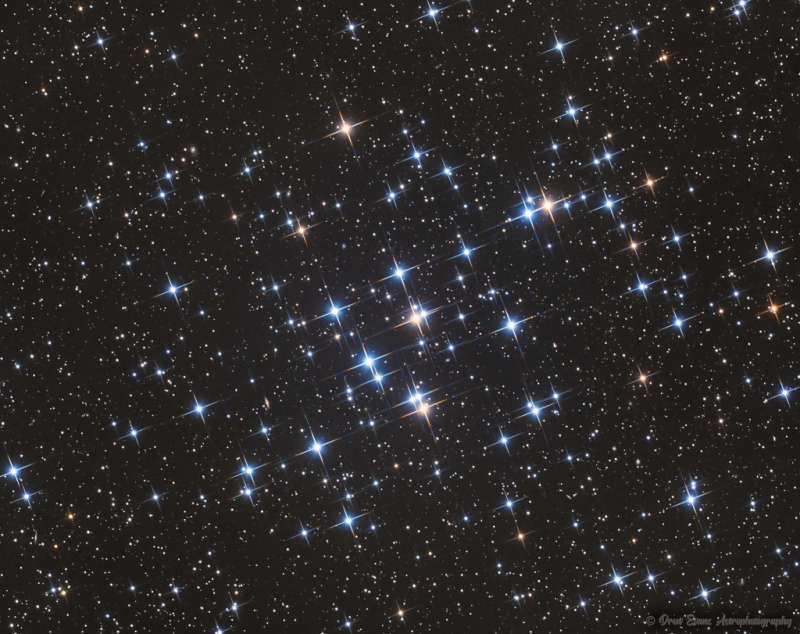
|
Credit & Copyright: Drew Evans
Explanation:
A mere 600 light-years away,
M44 is one of the closest
star clusters to our solar system.
Also known as the
Praesepe
or the Beehive cluster its stars
are young though, about 600 million years old compared to our Sun's
4.5 billion
years.
Based on similar ages and motion through space, M44 and the
even closer Hyades star cluster in Taurus
are thought to have
been born together in the same large molecular cloud.
An open cluster
spanning some 15 light-years, M44 holds 1,000 stars or so
and covers about 3 full moons (1.5 degrees) on the
sky in the constellation Cancer.
Visible to the unaided eye, M44 has been recognized since antiquity.
Described as a faint cloud or celestial mist long before
being included as the 44th entry in
Charles
Messier's
18th century catalog, the cluster was not resolved into its individual
stars until telescopes were available.
A popular target for modern, binocular-equipped sky gazers,
the cluster's few
yellowish tinted, cool,
red giants are scattered
through the field of its brighter hot blue main sequence
stars in this
telescopic group snapshot.
Dramatic
diffraction spikes
highlighting the brighter cluster members
were created with string crossed in front of the telescope's objective
lens.
|
January February March April May June July August September October November December |
| ||||||||||||||||||||||||||||||||||||||||||||||||
NASA Web Site Statements, Warnings, and Disclaimers
NASA Official: Jay Norris. Specific rights apply.
A service of: LHEA at NASA / GSFC
& Michigan Tech. U.
Based on Astronomy Picture
Of the Day
Publications with keywords: M 44 - open cluster
Publications with words: M 44 - open cluster
See also:
- APOD: 2025 August 7 Á The Double Cluster in Perseus
- APOD: 2025 April 28 Á Gum 37 and the Southern Tadpoles
- Open Star Clusters M35 and NGC 2158
- APOD: 2025 February 25 Á M41: The Little Beehive Star Cluster
- APOD: 2025 February 11 Á The Spider and the Fly
- APOD: 2024 October 29 Á NGC 602: Stars Versus Pillars from Webb
- NGC 7789: Caroline s Rose
